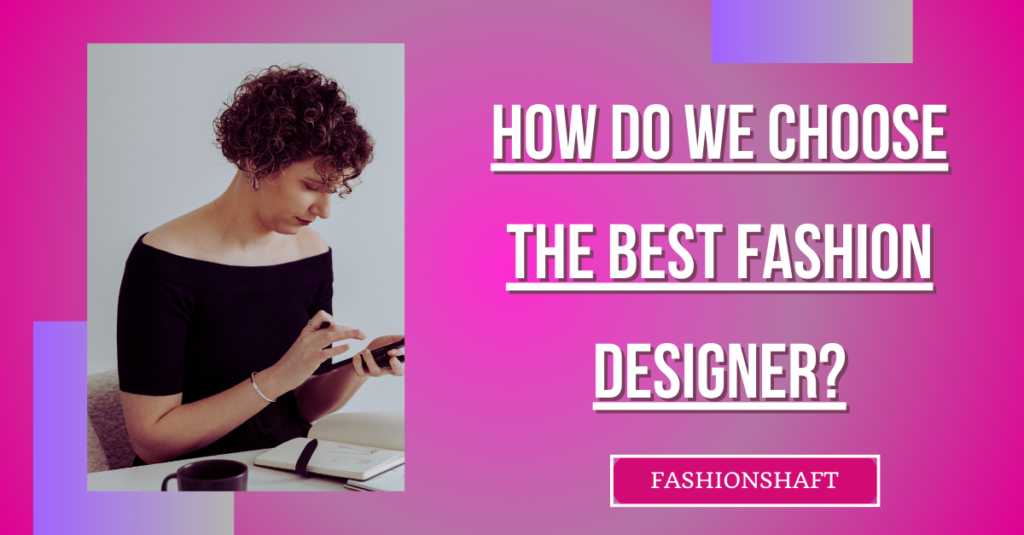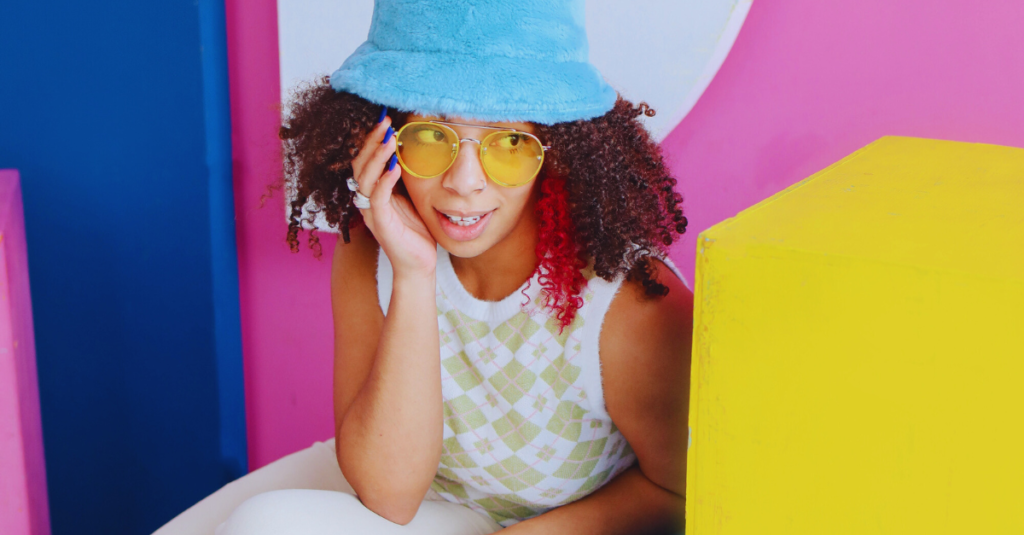How Do We Choose The Best Fashion Designer?
Introduction
Selecting the perfect fashion designer is a pivotal decision, as their creations often become an extension of our identity and style. In a world where fashion is a powerful form of self-expression, the choice of a designer can significantly impact our personal aesthetic and confidence. This article delves into the crucial factors that guide the selection process, ranging from understanding one’s unique style and preferences to researching both established and emerging talents. We explore the significance of a designer’s credentials, ethical practices, and the alignment of their work with our values.
Budget considerations, client reviews, and effective communication also play pivotal roles in this decision-making journey. By the end, readers will be equipped with a comprehensive guide to navigate the intricate process of choosing the best fashion designer to bring their sartorial visions to life.
A Comprehensive Guide on How to Choose the Best Fashion Designer
I. Understanding Your Style:
Before embarking on the journey to find the ideal fashion designer, it’s crucial to delve into your personal style preferences. Assessing the elements that resonate with you – be it classic, bohemian, eclectic, or minimalist – lays the foundation for the designer search. Consider your favorite fashion trends, colors, and silhouettes, and contemplate how they align with your lifestyle and the occasions for which you require attire. This introspective process ensures that you find a designer whose work resonates with your inherent style.
II. Researching Fashion Designers:
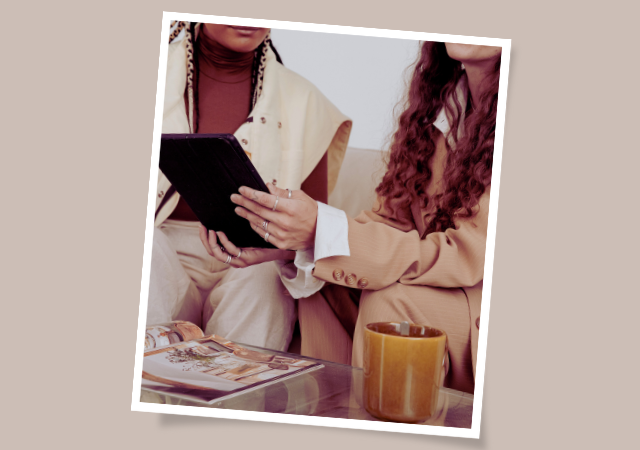
a. Exploring Established Designers:
Delving into the world of established fashion designers is a logical starting point. Recognizing iconic fashion houses and studying designers renowned for their signature styles provides valuable insights. From Chanel’s timeless elegance to Alexander McQueen’s avant-garde creations, understanding the unique offerings of established designers helps in refining your preferences and narrowing down potential candidates.
b. Discovering Emerging Talents:
Fashion is an ever-evolving realm, with new talents emerging regularly. Keeping an eye on fashion weeks, shows, and independent designers allows you to discover fresh perspectives and innovative approaches. Exploring boutique designers can uncover hidden gems, providing a unique and personalized touch to your wardrobe.
III. Evaluating Designers’ Credentials:
Beyond artistic flair, a fashion designer’s credentials are vital in assessing their capabilities. Consider factors such as educational background, training, and professional experience. A well-rounded designer with a diverse skill set is more likely to cater to a range of preferences and demands. Additionally, delve into their portfolio to gauge the consistency and quality of their work, ensuring it aligns with your vision.
IV. Assessing Designers’ Ethical Practices:
In an era of heightened awareness about sustainability and ethical practices, evaluating a designer’s commitment to these principles is essential. Consider their use of ethical materials, environmentally conscious practices, and support for fair labor initiatives. A designer who aligns with your values not only enhances your personal style but also contributes to a more sustainable and responsible fashion industry.
V. Budget Considerations:
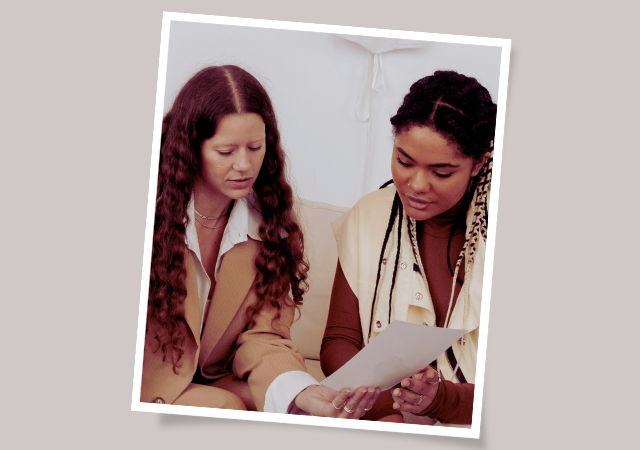
While the allure of high-end luxury designers is undeniable, it’s crucial to determine your budget constraints. Explore designers whose price ranges align with your financial comfort zone. Striking a balance between quality and affordability ensures a satisfying investment in your wardrobe without compromising financial stability.
VI. Client Reviews and Testimonials:
The experiences of previous clients offer invaluable insights into a designer’s professionalism and the quality of their work. Research online reviews, ratings, and testimonials to gauge customer satisfaction. Additionally, seek recommendations from friends, family, or fashion influencers whose opinions you trust. A positive track record with clients is a strong indicator of a designer’s reliability and competence.
VII. Personal Consultation and Communication:
The personal connection between a client and a fashion designer is paramount. Schedule consultations with potential designers to discuss your ideas, preferences, and expectations. Pay attention to their communication skills, openness to collaboration, and ability to translate your vision into tangible designs. A designer who understands and resonates with your aspirations ensures a more rewarding creative partnership.
VIII. Finalizing the Decision:
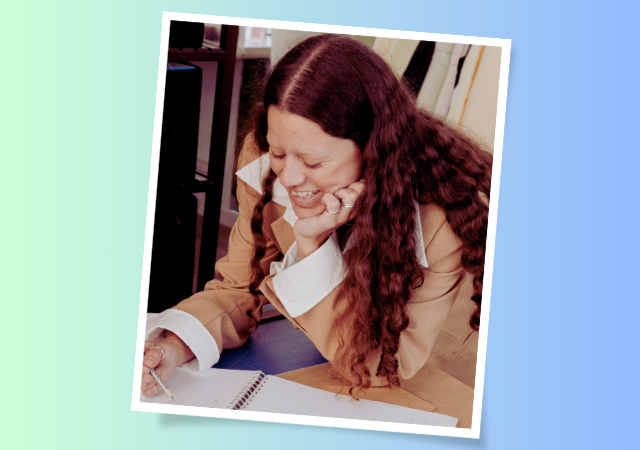
a. Weighing Pros and Cons:
Compile all the gathered information and weigh the pros and cons of each potential designer. Consider factors such as style alignment, credentials, ethical practices, budget, and client reviews. Assessing each aspect comprehensively allows for a holistic evaluation, guiding you toward the most suitable designer.
b. Considering Long-Term Relationships:
Choosing a fashion designer is not merely a one-time transaction but the beginning of a potential long-term relationship. Consider the designer’s versatility and adaptability to evolving fashion trends. A designer who can grow with your changing preferences ensures a sustained and rewarding collaboration over time.
c. Making the Informed Decision:
Armed with a wealth of information and a clear understanding of your preferences, make the informed decision that aligns with your style, values, and aspirations. Trusting your instincts while relying on the comprehensive evaluation undertaken ensures a choice that brings your fashion dreams to life.
Conclusion (How Do We Choose The Best Fashion Designer?)
Picking the right designer is like finding your style soulmate. Crafting a wardrobe that truly reflects your essence begins with understanding your style, exploring designers big and new, checking their credentials, and keeping an eye on your budget. Toss in a sprinkle of ethical considerations and client reviews for good measure. It’s not just about clothes; it’s about creating a connection. Meeting with designers and ensuring they get your vibe through open communication is key. Think of it as a journey—a fun, self-discovery adventure filled with artistic exploration. Choosing your fashion designer is like committing to a style story that shouts ‘you.’ It’s all about rocking your individuality with confidence!

My name is Rohit Vagh and I’m a content writer specializing in fashion and lifestyle. I have three years of experience in this field and have written various articles. My writing style is creative and engaging, and I strive to create content that resonates with my readers. I have a deep passion for fashion and am constantly researching the latest trends and styles to make sure my readers are up to date. I’m excited to continue my career in blogging, and I’m always looking for new opportunities in the fashion and lifestyle space.

